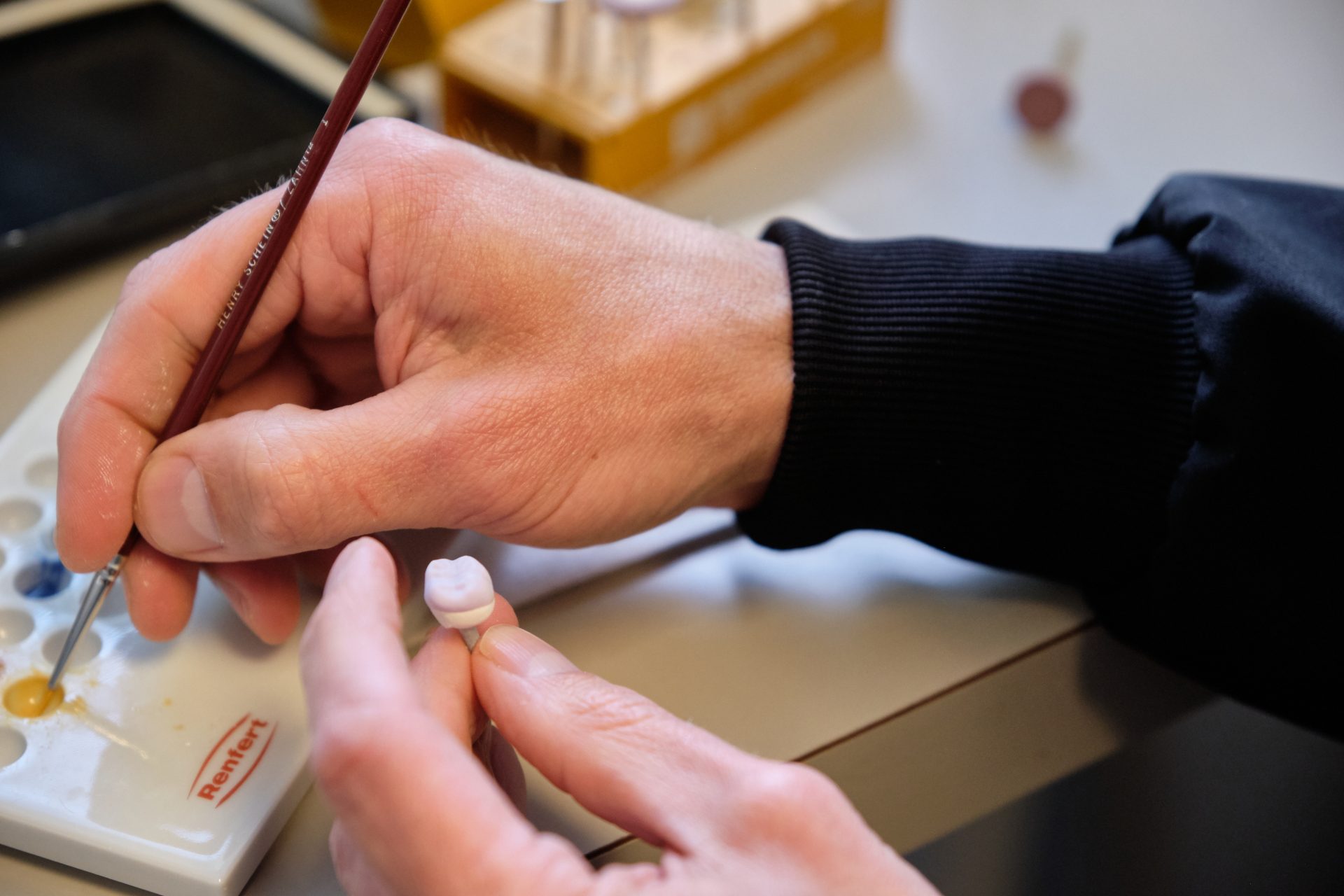
How Long Does it Take for Invisalign to Work?
October 13, 2021
Our Top Holiday Dental Tips to Keep You Smiling Through The Whole New Year
October 26, 2021Good nutrition can impact your whole body, including the health of your teeth and gums. If you want a beautiful smile, start from the inside by looking at what you eat and drink. So, what foods are good for oral health? Find out in this guide from our team at Southview Cosmetic Dentistry.
Cheese
Cheese is an exceptional food for maintaining good oral health by building bones and teeth and reducing acidity. So, why not make a habit of the French and dedicate a course after your main meal to cheese? Depending on your appetite, you can follow up the cheese course with dessert or skip the sweet treat. However, adding cheese to your diet can help your teeth to stay healthy.
Cheese contains calcium and phosphate, which have amazing benefits for your oral health. First, calcium helps to build strong bones and teeth. If you don’t regularly drink milk, you may lack calcium in your diet that cheese can supplement.
Lactose intolerance can be an issue for many people, especially as they grow older. However, many people with lactose intolerance can digest aged cheeses because the aging process breaks down much of the problematic lactose. When integrating cheese into your diet, go slowly to avoid causing a reaction. In large amounts, even lower lactose cheeses can upset the digestive tract of lactose-intolerant people. Try adding small amounts of cheddar, Parmesan, or swiss cheese to your diet to see how well you tolerate them.
Another benefit of cheese is the phosphate content. Phosphorus in cheese balances out acid in the saliva, neutralizing the pH in your mouth. By reducing the acidity of your saliva, cheese helps protect tooth enamel from acid wear. Plus, chewing on aged cheeses stimulates saliva production, neutralizing the mouth’s pH. Eating cheese after the main meal is an ideal time. It reduces the acidity in your mouth from the main course you just had, protecting your teeth from acid wear.
Yogurt
Yogurt is another dairy product that benefits your smile. Like cheese, it contains calcium and phosphates. Plus, yogurt’s live and active cultures break down lactose to make it digestible. These active cultures also can improve the balance of healthy bacteria in your mouth.
When choosing yogurt, skip the high-sugar varieties. Instead, opt for plain yogurt and add fresh fruit. You’ll save money and avoid having too much sugar, which could cause dental decay. If you want more protein, choose Greek yogurt, a thicker variation of traditional yogurt.
Nuts
Nuts are a great, low-sugar treat to add to your diet for better oral health. Packed with fiber and minerals, nuts include calcium for bone building, phosphorus for saliva balancing, and vitamin D for improving calcium absorption. Nuts are also great for snacking because they don’t contain sugars and are filled with protein and fiber.
Bacteria that cause tooth decay prefer to eat sugar. When you have a high-sugar diet, food particles left in the mouth after eating provide food for the bacteria, making the saliva more acidic as a byproduct of their digesting sugar. The extra acidity and actions of the bacteria result in tooth decay. Since nuts are low in sugar, they can prevent tooth decay, especially when combined with good oral hygiene.
Fatty Fish
Fatty fish, such as salmon, tuna, trout, and mackerel, contain vitamin D, which allows the body to absorb calcium more easily. However, more importantly for your oral health, these fish contain omega-3 fatty acids. A study linked intake of these fats to a lower incidence of gum disease. The fatty acids also help promote gum health.
Green and Black Teas
Drinking unsweetened green or black tea can benefit your oral health. These beverages contain polyphenols. These antioxidants can reduce the activity of oral bacteria.
If you use fluoridated water to prepare your tea, you also benefit from getting more fluoride in your diet. This mineral is so crucial to building healthy teeth and gums that most cities add it to their water supplies to protect the teeth of residents from dental decay. It is also the active ingredient in toothpaste that helps to protect teeth from wear after you brush them.
Crunchy, Fiber-Rich Vegetables
Crunchy vegetables such as carrots and celery play an important role in physically helping to clean your teeth. When you bite into one of these crunchy vegetables, you can scrape off some of the plaque from your teeth. So, if you cannot brush after a meal, consider adding carrot sticks or celery at the end to naturally provide some cleaning until you can brush. However, never replace brushing with eating vegetables. You should still brush and floss twice a day for good dental health.
Fibrous vegetables also promote saliva production as you chew them. Saliva is important for keeping your mouth’s pH balanced and protecting teeth from wear.
Vegetables also have vitamins and minerals, such as calcium and vitamin C. Calcium helps the body to maintain healthy bone density. Vitamin C encourages good blood vessel and tissue health, which are critical for the health of your gums.
Maintain Good Oral Health with Regular Dental Care from Southview Cosmetic Dentistry
While you may know what foods are good for oral health, you should also pair a quality diet with regular dental care. The sooner you begin a habit of regular checkups, cleanings, and treatments, the healthier your mouth will be. If you need a dentist in the Charlotte area to serve the needs of your entire family, including your kids, contact us at Southview Cosmetic Dentistry. Cosmetic dental care is in our name, but it is only one part of the comprehensive dental services we provide to give all our patients healthy, beautiful smiles.




